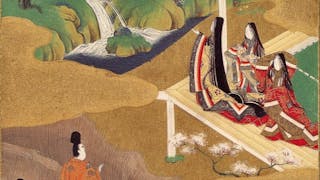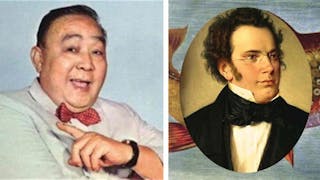Give and take 妥協、協調,有互相遷就的意思,fair compromise,是人與人之間平等互惠交往之道:Give and take is for the mutual benefit of both parties。A happy marriage largely depends on give and take,美滿的婚姻很大程度取决於互敬互讓。
Give/Present/Offer/Bestow/Confer 五詞辨析
這五個詞都含有「給」的意思,letting people have things,其區別在於:
give 的含義最廣,也最常用,表示「給」、「送」、「贈」或「付」等含義,meaning to pass over, deliver, or transmit something:you give a birthday present or you give someone encouragement。
present 表示「呈獻」或「贈送」,尤指在某種儀式上頒發、授予,to give something, especially at an official ceremony。
offer 表示「願意給予」,接受的一方可能接受,也可能拒絕,to hold out to a person for acceptance or refusal。
bestow is a formal word 正式用語,表示「授予」獎品或稱號等,to give someone something of value or importance:a title or an honour bestowed on him by the Queen 女皇賜給他頭銜。
confer 也是正式用語,表示正式地把學位或榮譽稱號等「授予」某人,to officially give someone a degree or an honour especially as a reward for something they have achieved。

Take/Seize/Snatch 三詞辨析
這三個詞都可作「奪取」、「抓住」解。前兩個詞通常都可以換用,但 take 最為常用,可表示「拿」或「搶」;seize 通常强調奪取的動作迅速而有力,to take hold of something quickly, eagerly or strongly;snatch 語氣最强,側重於表示一把抓住或猛烈地强行奪取,to take quickly and violently:the thief snatched the woman’s bag 小偷一把攫取婦人的提包。另外,snatch 和 seize 還可以用來表示抓住時間或機會等,兩者可以換用,例如:to seize an offer is to take and use it eagerly 連忙接受一個提議;snatched a few hours to have a sleep 抓緊幾個小時的時間睡了一覺。
Phrasal verbs(短語動詞)指由兩個、有時是三個詞組成的動詞。第一個詞是動詞(verb)take,其後接副詞(adverb)take up 或介詞(preposition)take in(文法書稱兩者做小品詞〔particle〕),或副詞加介詞,如 take up with。有些短語動詞的含義容易猜到,因為動詞和附加的詞都保持通常的意思,例如:take weight/pounds/surplus fat off,但也有不少具有習用語的特別意思,須通過學習才明白。Some verb combinations with prepositions and particles are more idiomatic than other phrasal verbs, they need to be learned. 試舉 Give 和 Take 常見的短語動詞做例子。
Common Phrasal Verbs of Give
give away:1. 贈送;2. 頒發;3. 泄露;4. 告發;5. 喪失;6. 在婚禮上將新娘交給新郎。
give back:1. 交還;2. 使……恢復;3. 報復。
give in:1. 投降;2. 遞交;give in to something 屈服於某事。
give off:散發氣味,發出光熱等。
give over 停止或拋棄某習慣;give over to:1. 托付;2. 把……留作特定用途;3. 沉溺於……。
give up:1. 放棄 idea, hope, right, territory;2. 停止 stop doing;3. 認輸;4. 獻出生命、時間等;5. 泄露某人的躲藏處;6. 放棄尋找或治愈的希望;7. 辭掉工作;give up on something 對某事表示絕望;give oneself up 投降,投案自首。
Take in/Take off/Take up
三者都是常見的短語動詞。
take in:可以有多個意思,蒙騙 deceive a person;明白 fully understand;容納 include;僱用 employ;留宿 give accommodation;收容 take in orphan/refugee/stray dog;改窄 make a piece of clothing narrower or tighter。Passengers take in the view of the Coast Mountains in Alaska from a ferry.
take off:休假 take a period of free time as a break from work;remove clothes, glasses, make-up 脫掉衣服、眼鏡,把臉上的粉抹掉等;模仿某人 imitate a person humorously:The actor can take the queen off very well;起飛 left the ground:The aircraft/flight/pilot/passenger took off;怱忙逃跑 The thief/boy/dog took off = ran away in a hurry;漸有起色 The sales/product/economy took off = began to improve greatly, make a profit。
take up:開始 begin to pursue a hobby, a sport;從事 begin to take up a job;佔用 occupy time or fill a space;着手處理 deal with;繼續 continue a task or a story;改短 shorten a piece of clothing。
take something up with somebody 提出某事同某人討論或商量;take up with somebody 開始和某人交往或要好;take somebody up on an offer 接受某人提出的建議。
本專欄逢周二、五發表





































